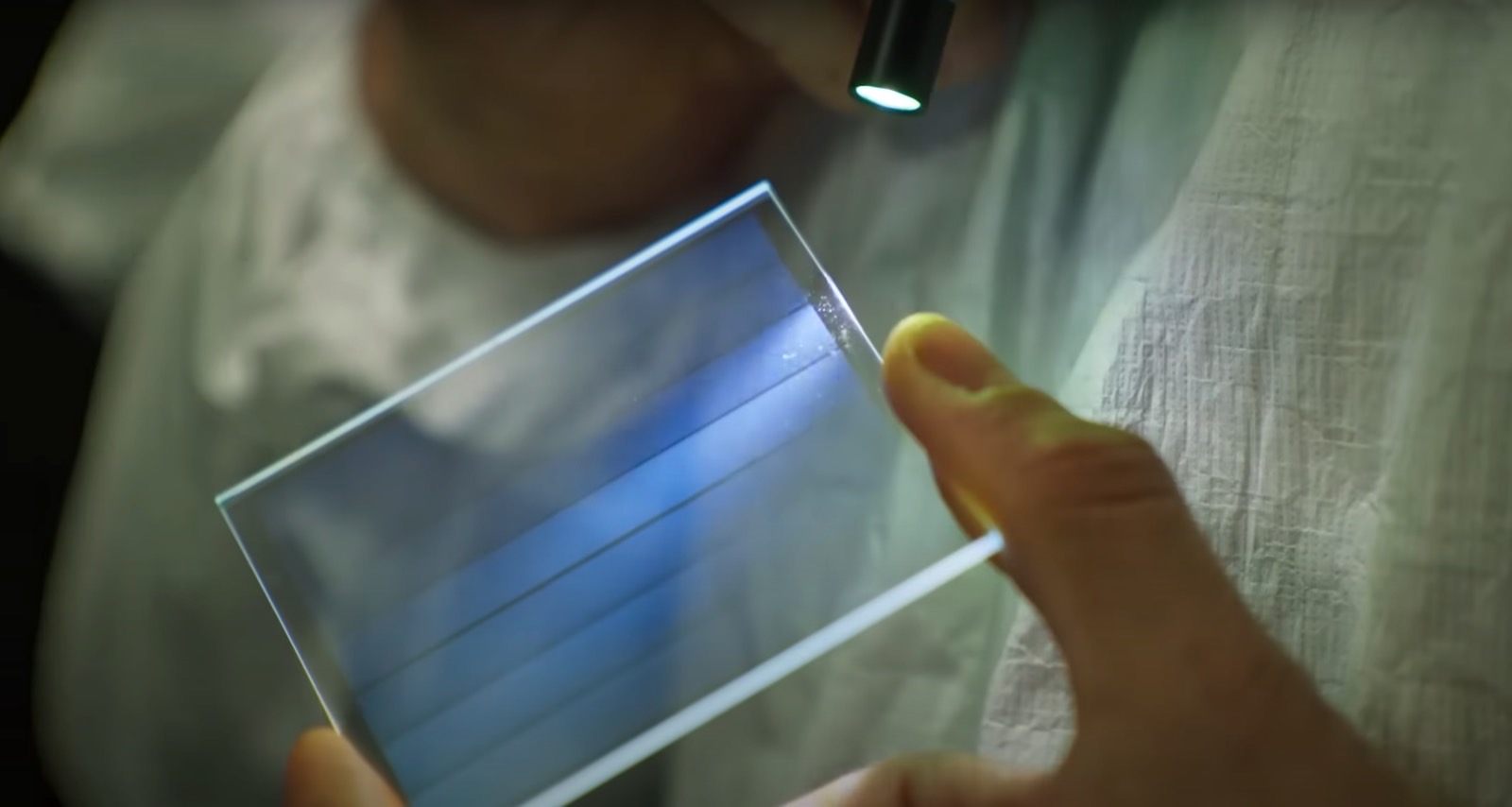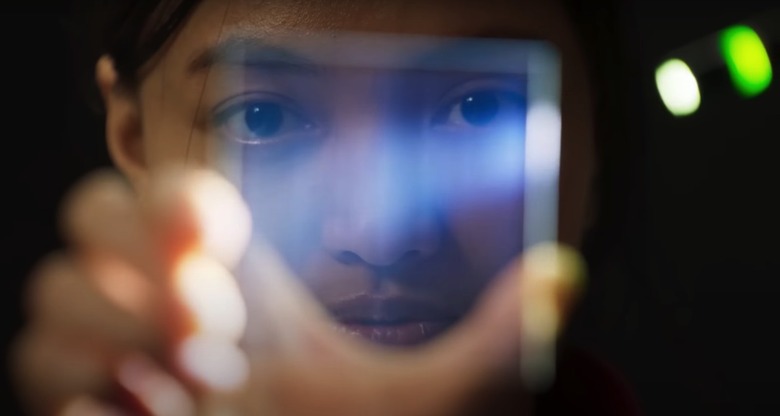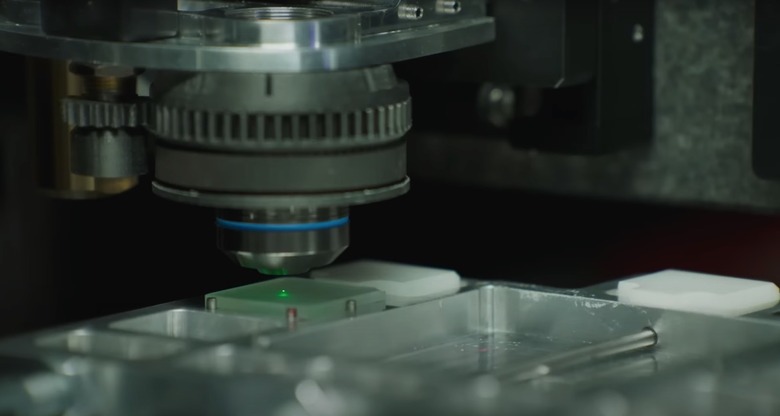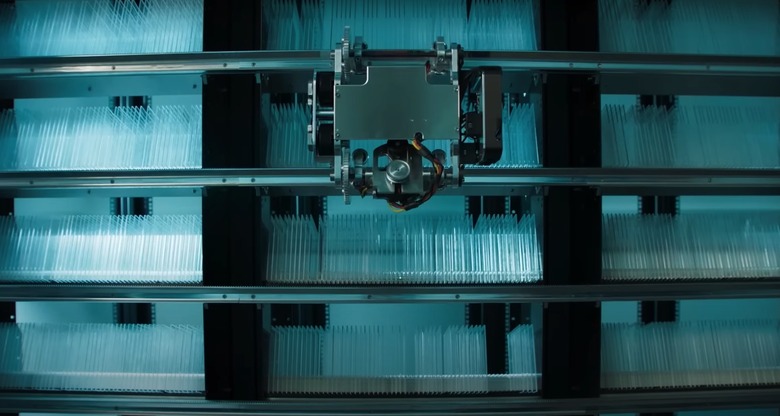Microsoft's Project Silica Turns Glass Into Futuristic Data Storage
The last time we talked about Microsoft's Project Silica was about four years ago when Microsoft was showing off a proof of concept. The company managed to write Warner Bros' Superman movie on a tiny piece of durable quartz glass that measured only 75 by 75 by 2 mm. That data is safer than copying the film on an SSD or magnetic tape, which have finite lifetimes.
Glass could store data for as long as 10,000 years without users having to recopy it to preserve it. SSDs, meanwhile, are only built to last 5-10 years.
Now, in fall 2023, Microsoft is finally ready to tell us more about its futuristic Project Silica and show off the amazing data center concepts that will store that data in the future, complete with a robotic system to retrieve the glass sheets that contain the data.
How Project Silica works
The major advantage of writing data to glass is that it'll be nearly indestructible. Microsoft's Project Silica uses an ultrafast femtosecond laser to write data to the glass. The laser creates so-called voxels, which are the 3D versions of pixels.
Then, a computer-controlled microscope reads and decodes that data. Finally, the data is deposited in a library that stores the glass without consuming any power. The sheets of glass sit on shelves without being connected to the web in real time.
The robots are the only power users in the library, moving both vertically and horizontally to get to the correct chunk of glass that holds the data the user wants to access. The robots can climb and descend the shelves, get the data, and move it to the reader.
In a blog post (via Yanko Design), Microsoft explains that "once we finish writing the glass and move it to the library, we design the system so it can never go back to the writer. It's completely immutable."
This aspect also means you won't want to store just any kind of data on silicon. Project Silica is not for you if you want to continuously edit and modify the data. But if you want to keep perfect copies of specific types of content, like books, music, and movies, Project Silica will get the job done.

To put things in perspective, the Project Silica team can now store several terabytes of data in a single glass plate. Or about 3,500 movies per sheet of glass. That's "enough non-stop movies to play for over half a year without repeating."
Similarly, a sheet of glass can hold some 1.75 million songs or about 13 years of movies.
How much does Project Silica storage cost?
I wouldn't be surprised to see Project Silica work with a large collection of personal photos and videos at some point in the future, maybe for OneDrive power users who would be willing to pay the cost. That's just speculation, however.
Project Silica has advanced considerably, considering what Microsoft is ready to show off in its new clips. But it's still ready for commercial adoption. Microsoft says glass storage tech still needs "3-4 more developmental stages before it's ready for commercial use."
Project Silica is working with the Microsoft Azure team on more sustainable ways to store data. In turn, the project uses Azure AI to decode data in the glass for the writing and reading processes. Microsoft also highlights Elire in the Project Silica update. The sustainability-focused venture group has collaborated with Project Silica to create a Global Music Vault in Svalbard, Norway.
The Global Music Vault is resistant to electromagnetic pulses and extreme temperatures. As Microsoft explains, you can scratch the glass it uses. You can cook it in an oven or boil it in water. The glass would not be damaged.
I'd expect Project Silica storage to be quite expensive, at least initially. Enterprises like Elire and Warner Bros. might be best served by glass storage when it becomes more widely available. But costs should then come down in the distant future.
You can see Project Silica in action in Microsoft's video below. Also, make sure to read the full Project Silica update from Microsoft at this link.


